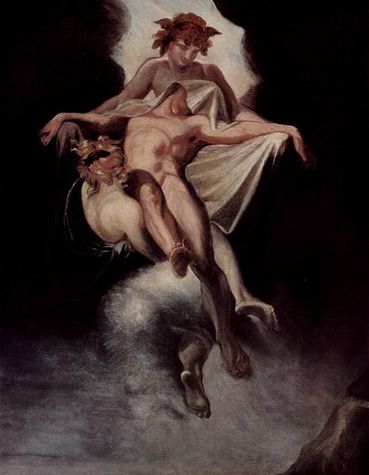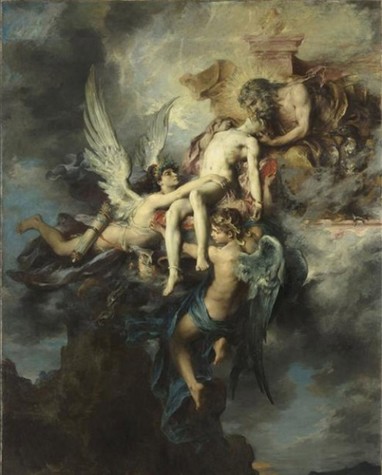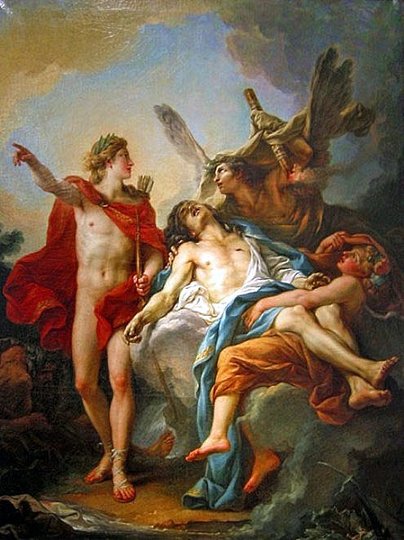THE STORY OF SARPEDON IN GREEK MYTHOLOGY
Sarpedon may not necessarily be the most famous of names from Greek mythology, but it is a name that appears on the periphery of several famous stories from Ancient Greece. There is a question though about just how many separate Sarpedons there were.
In Greek mythology it is not uncommon to find multiple characters sharing the same name; for example, on Crete, Asterion was the King of Crete who wed Europa, but it was also the given name of the Minotaur.
In this case it is quite clear that there were two distinct figures, in the case of Minos it is not so clear cut. Some sources make it clear that there was but one king of Crete, but others distinguish between grandfather and grandson, one just and fair king, and one wicked one.
A similar situation to that of Minos might exist with the mythological character of Sarpedon.
In Greek mythology it is not uncommon to find multiple characters sharing the same name; for example, on Crete, Asterion was the King of Crete who wed Europa, but it was also the given name of the Minotaur.
In this case it is quite clear that there were two distinct figures, in the case of Minos it is not so clear cut. Some sources make it clear that there was but one king of Crete, but others distinguish between grandfather and grandson, one just and fair king, and one wicked one.
A similar situation to that of Minos might exist with the mythological character of Sarpedon.
The First Sarpedon
|
The first Sarpedon, in Greek mythology, is like Asterion and Minos, a figure connected to the island of Crete, for indeed he was brother to Minos, or at least the first Minos.
Zeus would abduct the beautiful Europa from her homeland of Tyre, transporting her, whilst transformed as a bull to Crete. The relationship between Zeus and Europa was consummated beneath a Cypress tree, and subsequently three sons were born to Europa; Minos, Rhadamanthus and Sarpedon. The three boys were adopted by King Asterion when he married their mother, but when Asterion died, the problem of succession arose. The argument was eventually settled when Minos received a sign of the favour of Poseidon; and to avoid future conflict the other two brothers were banished from Crete. Rhadamanthus would travel to Boeotia, whilst Sarpedon would journey to Milyas, a land that would later be renamed Lycia. Sarpedon indeed, would be named as a king of Lycia. As king, Sarpedon would become father to two sons by an unnamed Theban woman; these sons being Evander and Antiphates. Sarpedon was also blessed by his father, Zeus giving the king of Lycia long life; a life said to be the equivalent of three normal lifetimes. |
|
The Second Sarpedon
|
The name of Sarpedon comes to prominence during the Trojan War, for it is name written down by Homer as one of the defenders of Troy.
The ancient sources that claimed that Sarpedon had been blessed with long life, subsequently state that the Sarpedon at Troy was the son of Zeus and Europa. Writers though believed that this longevity was itself a myth, sought to reconcile the appearance of Sarpedon at Troy, by stating that he was the grandson of the first Sarpedon. This reconciliation of characters would make Sarpedon nominally the son of Evander and Laodamia (or Deidamia), therefore grandson of the first Sarpedon and also of Bellerophon. To bring continuity to the tale though, this Sarpedon was not really the son of Evander, for Zeus had lain with Laodamia to bring forth the child. Sarpedon would ascend to the throne of Lycia, when his uncles and cousins withdrew their own claims to it; indeed it should have been Sarpedon’s cousin Glaucus who was rightly heir to the throne of Lycia. Nevertheless, it was Sarpedon who led the Lycians to the defence of Troy when the Achaeans attacked the Lycians’ Trojan allies, though Glaucus marched alongside his cousin. During the Trojan War, Sarpedon would become one of the most highly regarded defenders of Troy, ranking alongside Aeneas, and just behind Hector. |
|
Stories of the defence of Troy would often find Sarpedon and Glaucus fighting alongside one another, and in the most famous tale, the two cousins would lead a two-pronged attack against the Achaean camp, endangering the ships of the besiegers.
It had been prophesised though that Sarpedon was destined to die at the hands of Patroclus at Troy; and a one-on-one fight would occur between the two when Patroclus put on the armour of Achilles to defend the Achaean camp.
Zeus would muse upon the idea of saving his son Sarpedon from his destiny, but other gods and goddesses, including Hera, would point out that many of their own children were fighting and dying at Troy, and Zeus relented, and did not interfere. Sarpedon was therefore killed by Patroclus.
Glaucus would fight through the ranks of Achaean forces to recover his cousin’ body;, although, the armour of the Lycian king had by that time been stripped from the body. Then the gods intervened, for Apollo would cleanse the body of Sarpedon, and then the sons of Nyx, Hypnos and Thanatos would transport the body back to Lycia for the completion of funeral rites.
It had been prophesised though that Sarpedon was destined to die at the hands of Patroclus at Troy; and a one-on-one fight would occur between the two when Patroclus put on the armour of Achilles to defend the Achaean camp.
Zeus would muse upon the idea of saving his son Sarpedon from his destiny, but other gods and goddesses, including Hera, would point out that many of their own children were fighting and dying at Troy, and Zeus relented, and did not interfere. Sarpedon was therefore killed by Patroclus.
Glaucus would fight through the ranks of Achaean forces to recover his cousin’ body;, although, the armour of the Lycian king had by that time been stripped from the body. Then the gods intervened, for Apollo would cleanse the body of Sarpedon, and then the sons of Nyx, Hypnos and Thanatos would transport the body back to Lycia for the completion of funeral rites.
The Third Sarpedon
|
The name of Sarpedon does appear again in Greek mythology, and most notably it is a name that appears in the Bibilotheca, although this Sarpedon is not related to the first two.
This Sarpedon would be a man encountered by the Greek hero Heracles. Heracles was on his way back to Tiryns, having successfully obtained the Girdle of Hippolyte for his ninth Labour, when landed on the shores of Thrace near the city of Aenus. |
|
At that time Aenus was ruled by Poltys, a son of Poseidon. Aenus had a brother named Sarpedon who was extremely rude to Heracles during his brief stay in Thrace. In retribution, Heracles, as he was departing the shores of Thrace, took up his bow and arrows, and shot dead Sarpedon.
The third Sarpedon is but a minor figure, and today, the name of Sarpedon is most closely associated with the defender of Troy, for this Sarpedon was both heroic and loyal.
The third Sarpedon is but a minor figure, and today, the name of Sarpedon is most closely associated with the defender of Troy, for this Sarpedon was both heroic and loyal.


